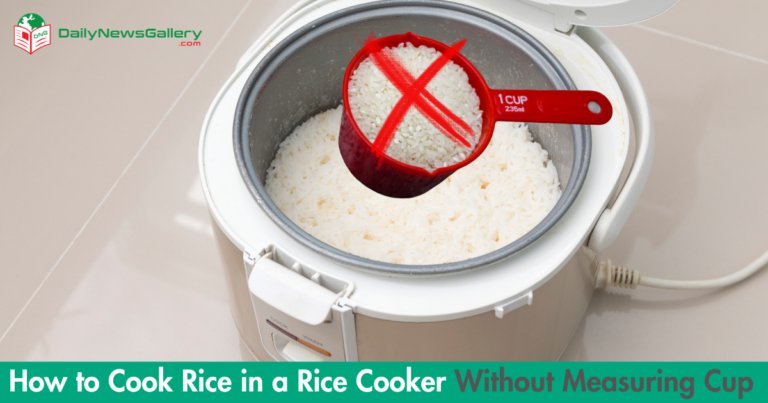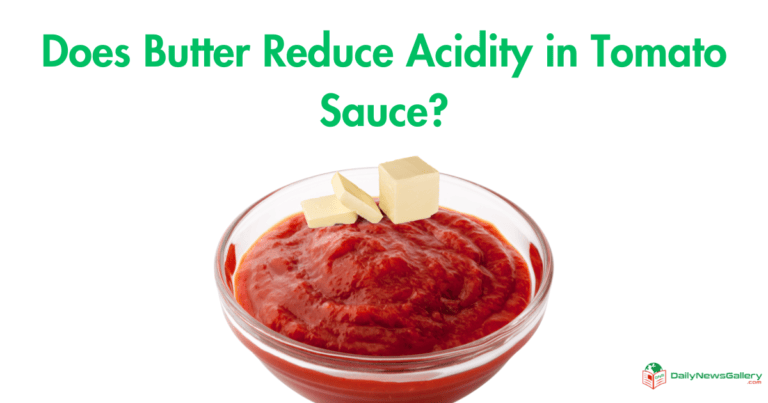
Alright, let’s dive into the world of cooking and explore the intricacies of tomato sauce and its acidity. As someone who has spent countless hours in the kitchen, I’ve often faced the challenge of balancing the flavors in my dishes. One such challenge is managing the acidity in tomato sauce.
So, let’s get started!
You may also have a question Does Butter Reduce Acidity in Tomato Sauce? The answer is given in that post so make sure to see that as well.
Does Vinegar Cut Acidity in Tomato Sauce?
No, vinegar, being acetic acid, actually adds to the acidity. To decrease the tartness of tomato sauce, consider adding a pinch of sugar or a sprinkle of baking soda instead.
Balancing Acidity in Tomato Sauce: A Homemaker’s Guide
Tomato sauce is a staple in many kitchens, including mine. Its rich flavor and versatility make it a favorite for pasta, pizza, and many other dishes.
However, there’s a common challenge that many of us face when cooking with tomatoes: their natural acidity.
Sometimes, this acidity can overpower a dish, making it taste more tart than desired. Over the years, I’ve learned a few tricks to manage this acidity, and today, I’m sharing them with you.
Natural Ways to Cut Acidity
One of the most effective ways to neutralize the acidity in tomato sauce is by using baking soda. Just a quarter teaspoon per cup of sauce can make a significant difference.
Another method I’ve found useful is adding butter. A teaspoon of butter melted into the sauce, can mellow out the sharpness and give it a creamy texture.
Understanding Vinegar’s Role
While vinegar might not reduce the acidity of tomato sauce, it can enhance its flavor. Red wine vinegar, for instance, adds a tangy touch to the sauce.
It’s like squeezing a slice of lemon into a glass of water – it brightens the taste. However, it’s essential to use vinegar sparingly to avoid making the sauce too sour.
Alternative Methods to Reduce Acidity
If you’re not a fan of sugar or want to try something different, there are other ways to cut the acidity in tomato sauce.
For instance, using fully ripe tomatoes can make a difference as they tend to be less acidic. Additionally, dairy products like milk and butter can help neutralize the acid, giving your sauce a smoother taste.
FAQ
- Can I use lemon juice to reduce acidity in tomato sauce?
- While lemon juice is acidic, in small amounts, it can brighten the flavor of the sauce without making it overly tart.
- Why does my tomato sauce taste bitter?
- Overcooking certain herbs or using unripe tomatoes can introduce bitterness to the sauce.
- Does sugar neutralize the acid in tomatoes?
- Sugar doesn’t neutralize the acid but helps balance out the tartness, making the sauce taste better.
- How can I make my tomato soup less tangy?
- Adding baking soda or dairy products like milk can help reduce the tanginess in tomato soup.
- Can I use red wine vinegar instead of red wine in tomato sauce?
- Yes, red wine vinegar can be a substitute for red wine in tomato sauce, but use it sparingly to avoid making the sauce too sour.
- Is vinegar basic or acidic?
- Vinegar is acidic, with its pH level varying based on the type.
- What can I add to spaghetti sauce to make it less acidic?
- Baking soda, sugar, or dairy products like butter can help reduce the acidity in spaghetti sauce.
- Why is my homemade tomato sauce so acidic?
- The natural acidity of tomatoes, combined with other acidic ingredients like wine, can make the sauce very tart.
- How do I get rid of the bitter taste in my spaghetti sauce?
- Adding a pinch of sugar or ensuring you use ripe tomatoes can help counteract the bitterness.
- What does vinegar do to tomato sauce?
- Vinegar, especially red wine vinegar, can enhance the flavor of tomato sauce, giving it a tangy touch.
Balancing the flavors in tomato sauce can be a bit of a challenge, but with the right ingredients and techniques, you can achieve the perfect taste.
Remember, cooking is as much an art as it is a science. So, don’t be afraid to experiment and find what works best for you. Happy cooking…!




